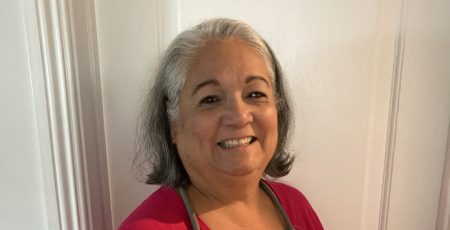
26 Mar Coping with Isolation During COVID-19: Resources for Those with Lung Disease
For those already living with lung diseases like asthma, COPD or emphysema, keeping ahead of the novel corona virus is more important than for most. Age and pre-existing lung disease are the two biggest risk factors for being hospitalized with COVID-19.
Shelter in place. We’ve all been bombarded with health information over the last few weeks, and many of us are in states or countries where stay-at-home has been advised or mandated. Here in California, the governor moved very quickly from social distancing advisory to issue a stay-at-home order on March 19, 2020, in an attempt to preserve the public health and ensure that healthcare delivery is capable of serving all who need it. Building on experiences of the disease in the Lodi province of Italy where stay-at-home orders were issued very early, this strategy is hoped to slow the progression of COVID-19 through the community, and preserve healthcare capacity to be there for when any one of us might need it. Evidence gathered by UCSF suggests that implementing strict shelter-in-place policy in Lodi was effective, compared with other regions, such as Bergamo, which did not (Figure 1).
Staying healthy. We’re all learning new things, such as 20 seconds is a really long time when you are washing your hands, or 6 feet seems awfully close when the person standing 6 feet away from you sneezes. If you have lung disease, the advice you have been receiving is even more important.

You can get up-to-date health information from both the World Health Organization (WHO) and the Centers for Disease Control and Prevention (CDC). There is additional information from the CDC for those with chronic lung diseases. Among others, BreatheLA and the American Lung Association (ALA), have also released guidance specifically for those with lung diseases. The ALA is hosting a webinar every Monday at 1:00 PM (central time), where their Chief Medical Officer, Dr. Albert Rizzo, will provide information on COVID-19 and recommendations for people with chronic lung disease and their caregivers. Register for the webinars in advance, watch recorded updates from previous weeks and access their FAQs 24/7—all available online. The COPD Foundation also hosted a webinar on March 17th, which is available here. The COPD Foundation will also host a webinar with Dr. Michelle Eakin on Thursday, March 26, 2020, from 3:00 – 4:00 pm EDT. Dr. Eakin is a clinical psychologist at Johns Hopkins University to address the topic of maintaining your emotional health during this stressful time. Register here for the free webinar.
In addition to all the health behaviors you’ve been hearing about (handwashing, avoid face touching, social distancing), here are some extra pointers for patients with COPD:
- The CDC does not currently recommend the use of masks for most people: only people who are sick with COVID-19, and the people who are caring for them, should wear face masks.
- Make sure you have a 30-day supply of current medications on hand. Many pharmacies now deliver medications, so consider that rather than venturing out. If you do need to go out, then most pharmacies will allow you to call ahead and prepay prior to pick up. That way you can minimize the amount of time you have to spend around others.
- If you rely on oxygen, contact your oxygen supplier to ask what plans they have made to prepare for a COVID-19 outbreak in your community.
- If you rely on a visiting nurse or aide to help you in your home, check with them to make sure they are following recommended protocols for disease prevention. Before they enter the house, ask them whether they have recently been around others with potential COVID-19, whether they have any symptoms (coughing, sneezing, sore throat, fever, aches), and ask them to wear a mask and gloves when entering the house.
- Clean and disinfect your home to remove germs. Practice routine cleaning of frequently touched surfaces such as tables, doorknobs, light switches, handles, desks, toilets, faucets, sinks, cell phones, and remote controls. But also remember that some sanitizers give off fumes that can be a trigger for asthma attacks and COPD flare-ups.
- Have a plan if you get sick. Consult with your health care provider for more information about monitoring your health for symptoms suggestive of COVID-19.
- Determine who can provide you with care if your caregiver gets sick or is around anyone who gets sick. If your caregiver or family member is exposed to someone with COVID-19, they may not show symptoms for up to 14 days. So make sure the caregiver or family member self-quarantines for 14 days to ensure they are not infected and do not infect you.
- Some symptoms of COVID-19 may be similar to what COPD patients experience with a COPD flare-up (exacerbation). But watch for a high fever. High-grade fevers are a common symptom of COVID-19 but are not a common symptom of COPD flare-ups.
Staying active. As many with lung diseases already know, staying active is one of the best treatments for reducing symptoms of shortness-of-breath. We know that many of you stay active and fit through maintenance exercise classes at your local pulmonary rehabilitation center, silver sneakers, YMCA or similar. Now that we are confined to home, it is more important than ever to build activity into our lives.
- Tip 1: Make a timetable. And stick to it! If you used to go to classes twice a week, then make sure you stick to your guns and do some exercise at home twice per week.
- Tip 2: You don’t need expensive equipment to stay fit in your own home. If you are new to starting an exercise program at home, visit our Basics pages to learn how to build exercise into your home schedule.
- Tip 3: If you are more experienced, or looking for more of a challenge, read the advice from Dr. Tom Storer, PhD, published on our blog in 2018.
- Tip 4: There are literally thousands of online exercise sessions that you can join to help guide you. One place to start for COPD patients might be the Daily Fitness and Exercise Session from The Toronto Western Hospital Pulmonary Rehabilitation program on YouTube. Search around for similar sessions that are appropriate for you.
Staying connected. Everyone is adjusting to a new way of living. There’s nothing quite like sharing some time with friends and loved ones help dispel anxiety. But if you’re not used to using technology to contact others, it can be an added stress. The BBC put a step-by-step guide for how to make video calls with Android or iPhone, tablets or computers, and how to use apps such as WhatsApp, Skype, Zoom or Google. Check out their guide here: https://www.bbc.com/news/technology-51968122.
In addition, PERF is here to help answer your questions. You can submit questions in response to this blog in the comments box, so others can learn from our conversation. Or, if you prefer, you can send us an email at perf@2ndwind.org. We’re here to help.
Take care of yourself and one another, stay healthy and be safe! The words of the late Leonard Nimoy, actor, author, director, singer-songwriter and COPD patient, never rang louder – Live Long and Prosper (LLAP)!





Richard Casaburi
Posted at 09:17h, 27 MarchExcellent, timely blog. Everyone keep safe!